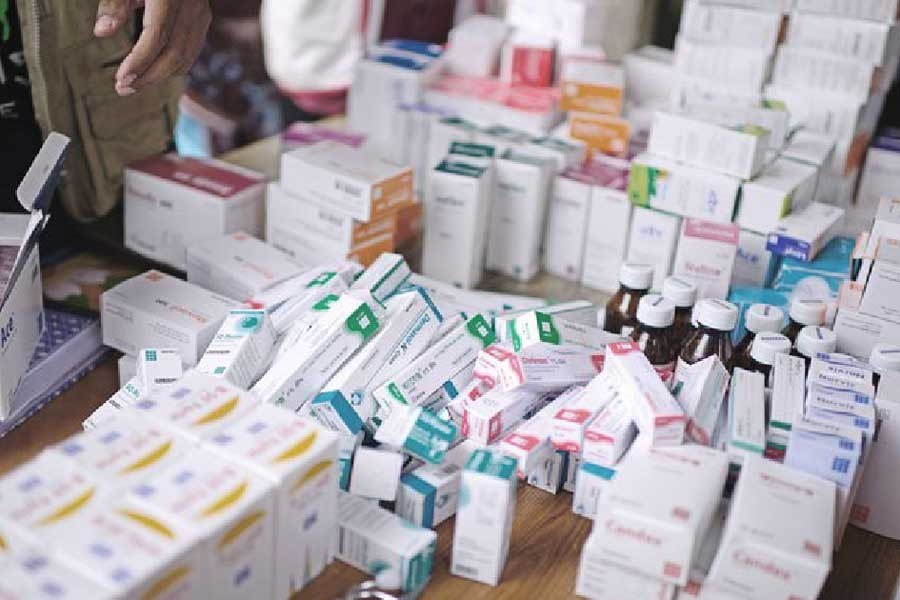Selling date-expired drugs that too by renowned drug stores in the capital did cause a stir some days ago. While spurious drugs are already a cause of worry in the country's healthcare sector, the latest shocker is too upsetting to spare any confidence for the consumers while buying medicines-often for critically ailing patients at high and even unaffordable prices.
Fining and sealing the stores are barely the most effective moves as these are periodic and infrequent in nature. Such occasional drives have done very little to curb criminalities so often encountered in market practices. What indeed is most distressing is that if the drug stores including some major ones in the capital itself indulge in the practice of selling date-expired and spurious medicines, it must not be seen as a stray phenomenon, but one pervasive all over the country. It may not seem too untoward to think that the racket that controls domestic medicine supplies has dug its roots deep enough to prevail strongly on the country's drug market, not bothered by the sporadic actions of the regulatory bodies including those of the Directorate General of Drug Administration (DGDA). Also, one cannot brush off the presence of a nexus with a section of the medicos who prescribe these drugs. It is quite logical to ask how these counterfeit or substandard products get a sizeable market share in the competitive drug market if these are not methodically promoted.
Entry of foreign medicines, date-expired and of substandard quality, reportedly enter the local market through informal channels due to lax monitoring and supervision. Although authorised agencies are allowed by the Directorate General of Drug Administration (DGDA) to import only registered drugs and medicines, about 20 to 25 per cent of foreign medicines enter the local market through unauthorised channels. The practice has been on for long, and the DGDA, despite being mandated to rein in marketing of spurious and substandard drugs, is yet to make its role visible in ensuring safe drugs for the people. The DGDA, however, refuses to accept the allegation and puts the blame squarely on a section of drug importers who resort to newer methods to flout government rules regarding drug imports.
Looking at the scenario it is difficult to fathom how the spurious drug market has been flourishing unabated over the years. Routine inspection of the pharma companies across the country or on a lesser scale, collection of sample drugs from the market on a regular basis could have served to ensure the authenticity of the drugs as regards their formulation, manufacturing practices and compliance. In this connection, the bad news as revealed by a local daily last week is that 90 per cent of the drugs available in the market are not tested, as the government's drug testing laboratories do not have the capacity to do so. The report further adds that the government-run labs are not sufficiently equipped to test the quality, efficacy, potency and toxicity of drugs. This no doubt presents a pathetic scenario addressing which calls for major initiatives to overhaul the entire drug market following a well thought out plan of action and clear roadmap.


